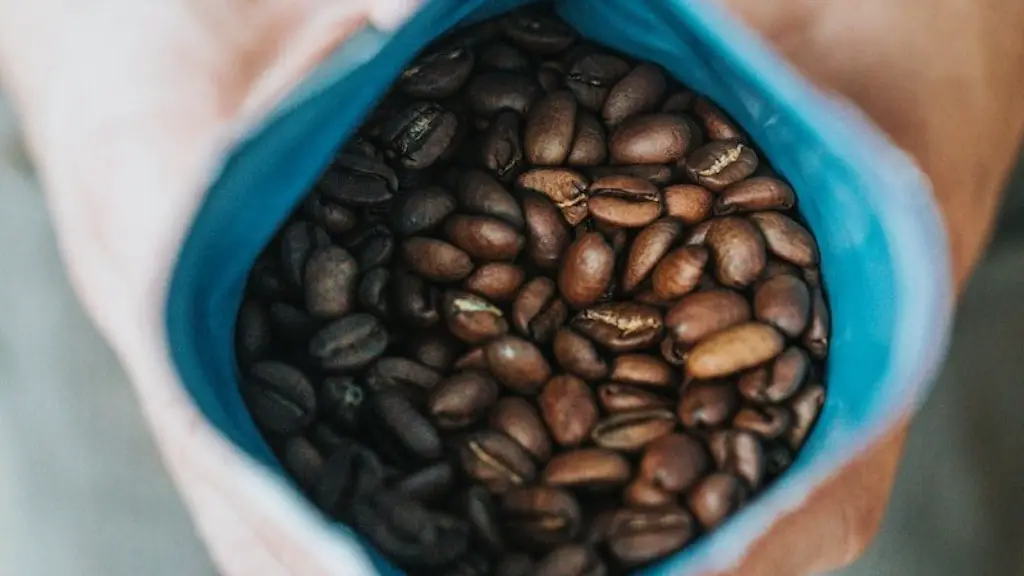Pregnant women have long been urged to abstain from drinking coffee due to its potential effects on the fetus. Such concerns aren’t without merit – the stimulant properties of coffee have been a source of research since the 1960s, and the increasing accessibility of the drink has meant that many people are consuming it in large amounts. But are the effects on pregnant women as alarming as once thought, or can you drink coffee while expecting?
Nutritional Values & Health Effects
The key ingredient in coffee is caffeine, one of the most widely-used stimulants in the world. For pregnant women, the recommended daily allowance is 200 milligrams per day, or the equivalent of two cups of coffee. But taking this into consideration, too much caffeine can lead to infertility and other issues like increased risk of miscarriage and preterm labor. It’s worth noting, however, that research on how caffeine affects pregnancy is still relatively limited, and there is no conclusive evidence that suggests drinking coffee while pregnant causes any kind of harm.
In some cases, consuming coffee in moderation can even be beneficial – the antioxidants found in coffee can help keep your energy up and provide essential vitamins and minerals that are needed during pregnancy. A number of studies have also linked moderate coffee consumption with a decrease in the risk of Gestational Diabetes, a condition that can occur during pregnancy.
The Pros & Cons
It’s important to consider that regardless of the health benefits of drinking coffee, caffeine is still a stimulant and can have an adverse effect on the body. Drinking coffee in excess can lead to feelings of irritability and anxiousness, and it might interfere with the body’s natural sleep cycle, making it difficult to get the recommended eight hours of sleep a night. This can be especially dangerous during pregnancy, as sleeplessness has been associated with preterm births.
It’s also worth noting that other food and drinks such as energy drinks, tea, and chocolate also contain caffeine, and women should be aware of the amount they are consuming throughout the day. To remain safe, it’s best to consult with your doctor about your caffeine intake levels and any other potential risks that may arise from drinking coffee during pregnancy.
Researchers’ Advice & Alternatives
As with any health related decision, it’s important to consult with a healthcare professional before making any changes. In the meantime, researchers suggest that the healthiest approach for pregnant women is to limit their caffeine intake to 200 milligrams per day or less – the equivalent of two 8-ounce cups of coffee – and to make sure to drink plenty of water throughout the day. It’s also important to note that decaf coffee also contains caffeine, so make sure to read the label if you’re planning on drinking it.
For those looking for a caffeine-free alternative, there are a number of options available. Herbal teas are a popular choice, as they are safe for consumption during pregnancy and can provide an energy boost without the risks associated with caffeine. Alternatively, you can opt for carbonated drinks that don’t contain caffeine, such as flavored sparkling water or soda.
Data & Statistics
Research on the effects of coffee on pregnant women has been inconclusive, so it’s important to take into account all the available data when making decisions. A 2018 study published in the American Journal of Obstetrics & Gynecology, for instance, found that pregnant women who drank one to two cups of coffee per day did not have an increased risk of miscarriage or stillbirth, although it’s worth noting that the study did not look at other potential risks.
Meanwhile, figures from the Centers for Disease Control and Prevention suggest that around 65% of pregnant women in the United States are coffee drinkers. Of those, around 28% of women consume less than 200 milligrams of caffeine per day, while 24% of women consume more than 200 milligrams. This suggests that even if coffee consumption is increasing, women are still taking their health into account when it comes to drinking coffee while pregnant.
Trends & Markets
In recent years, the coffee industry has seen a surge in popularity, with gourmet coffee shops and specialty coffee drinks becoming commonplace in cities and towns across the world. This growth has been seen in the prenatal market as well – more and more vitamin and supplement companies are creating coffee-based products specifically designed for pregnant women. These products usually contain less caffeine than their store-bought counterparts, and have often been fortified with essential vitamins, minerals, and other natural ingredients to ensure both the mother and the baby are getting the necessary nutrients.
Moreover, research has suggested that the health benefits of drinking coffee while pregnant may have been exaggerated, resulting in more pregnant women drinking coffee in moderation without fear of any harm. This is especially true among young women, as research suggests that a growing number of millennials no longer view coffee as a lifestyle choice but as a necessity for getting through the day.
Doctors’ Advice & Analysis
Ultimately, when it comes to drinking coffee while pregnant, it’s best to heed the advice of your doctor. While there may be some potential health benefits to be had, it’s important to keep in mind that excessive caffeine intake can still lead to adverse effects on the body. Moreover, research on the subject has been inconclusive and it’s important to take into account all the available data before making any decisions.
In the meantime, if pregnant women do choose to drink coffee, more natural alternatives may be a better option. After all, cutting out the added sugar and milk can be a healthier choice and is less likely to interfere with the body’s natural processes. And if you’re not a fan of coffee, there are other options to consider, including herbal teas and carbonated drinks.
At the end of the day, the choice to drink coffee while pregnant is a personal one and shouldn’t be taken lightly. It’s best to consult with your doctor about your caffeine intake levels and any potential risks that may arise from making that choice.



